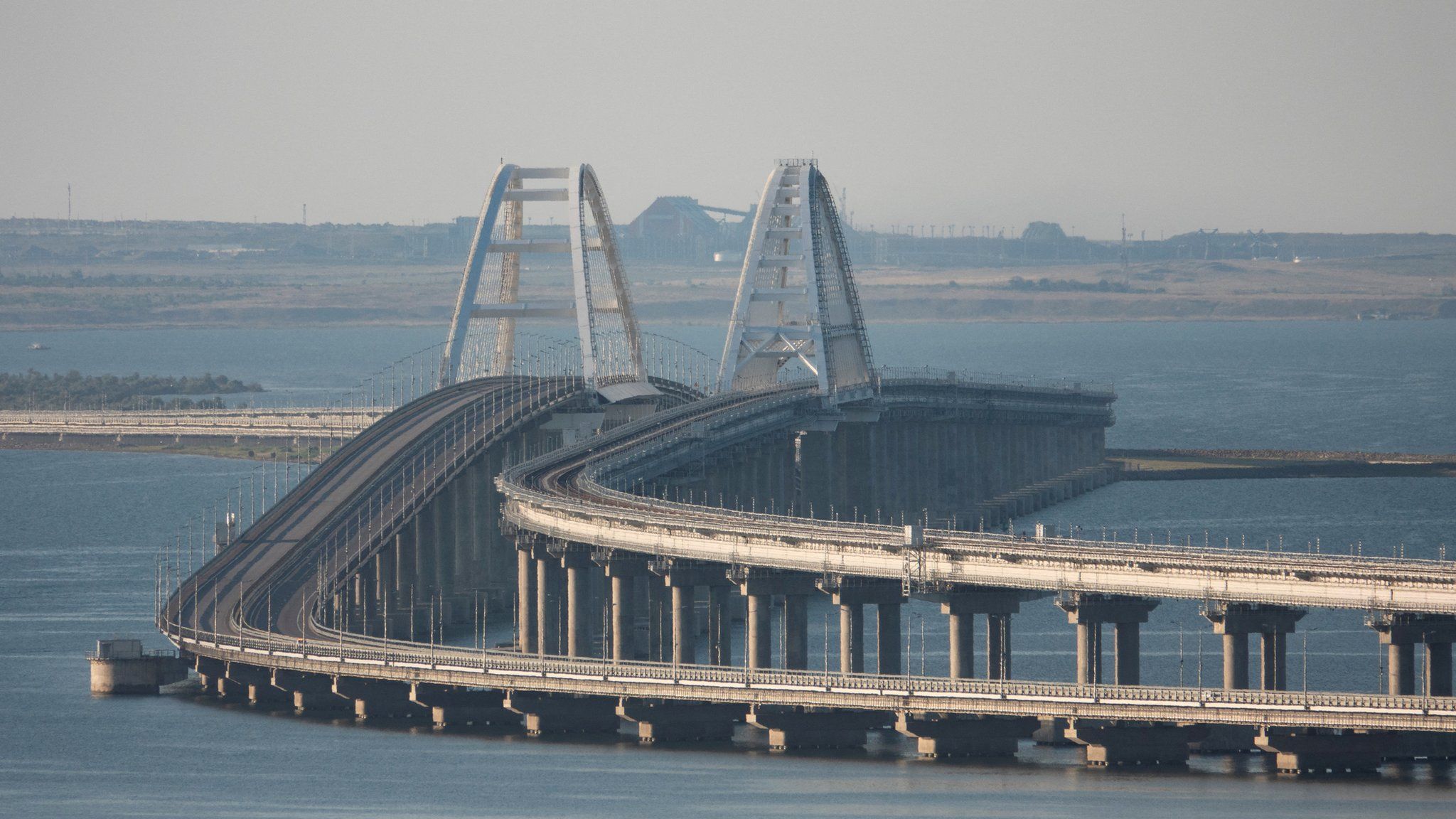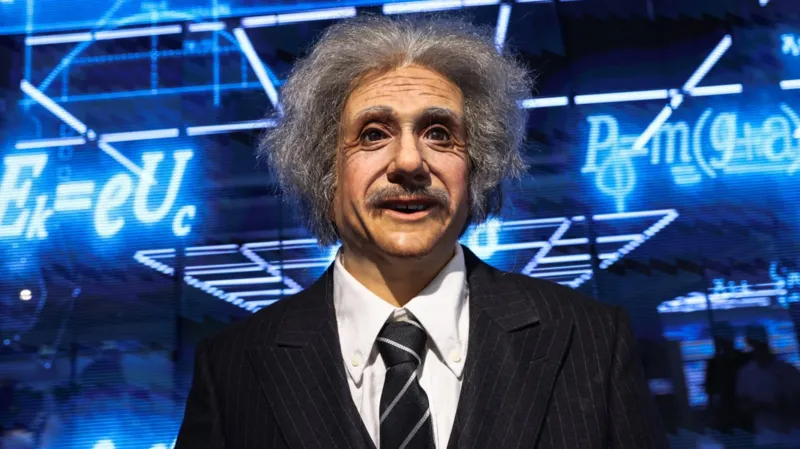Kerch bridge is hated symbol of Russian occupation
Ukrainian officials are maintaining their customary ambiguity about the latest attack on the Kerch bridge, but its location and strategic significance mean it was always likely to come under renewed assault.

With Kyiv's counter-offensive aiming to deal a decisive blow to Russian forces occupying southern Ukraine, the bridge is a key target.
There aren't many ways for Moscow to reinforce its troops in Crimea and the southern Kherson region. The Kerch bridge is one of the most important.
If the bridge is out of action, even for a short time, this will complicate Russia's logistical challenges, a key aspect of the early phase of Ukraine's counter-offensive.
Last October's devastating explosion on the bridge - which Russia blamed on a massive truck bomb, organised by Ukrainian intelligence - came as Ukraine was pressuring Russian forces to abandon the city of Kherson. Now Kyiv wants to make life as difficult as possible for Russian forces occupying areas south of the Dnipro River.
Logistics hubs across the south have been repeatedly hit using long-range weapons supplied by Ukraine's Western backers.
If, as seems likely, Kyiv was behind this latest attack on the Kerch bridge, it should be seen in the context of Ukraine's wider effort to liberate areas of the south occupied during last year's full-scale Russian invasion.
Ukraine's forces have retaken 18 sq km (7 sq miles) over the past week in their fightback, Ukraine's deputy defence minister Hanna Maliar said on messaging app Telegram on Monday.
Those gains take the total area of reclaimed land to 210 sq km (81 sq miles) since the counter-offensive began.
Ms Maliar also recently claimed that Kyiv's forces had destroyed six Russian ammunition depots in the space of 24 hours, a remark that hinted at Ukrainian tactics.
"We inflict effective, painful and precise blows and bleed the occupier, for whom the lack of ammunition and fuel will sooner or later become fatal," she said.
Beyond that, Moscow knows that Kyiv would dearly love to take back the Crimean Peninsula, invaded and annexed by Russia in 2014.
For Ukrainians, the Kerch bridge, inaugurated by President Vladimir Putin in 2018 amid great fanfare, is a hated symbol of Russian occupation. Last October's explosion, which briefly crippled the bridge, was greeted with euphoria across Ukraine.
Despite predictions that repairs could last well into this summer, work on the damaged road spans was apparently concluded within two months, an indication of the importance Moscow attached to getting the bridge up and running again.
It's not completely clear what's been damaged this time. The bridge has parallel road and rail lines. From a military point of view, the rail link is the most important: it's been used to carry tanks and other heavy armoured equipment into Crimea from Russia.
There are no immediate signs that the rail bridge has been hit. Pictures and video circulating on social media suggest the latest attack is less devastating than the last.
But this is unlikely to be the last attack. The Kerch bridge is well within range of weapons such as the British-supplied Storm Shadow missile. As long as it serves any military purpose for Russia, it'll remain in Kyiv's sights.
-bbc







